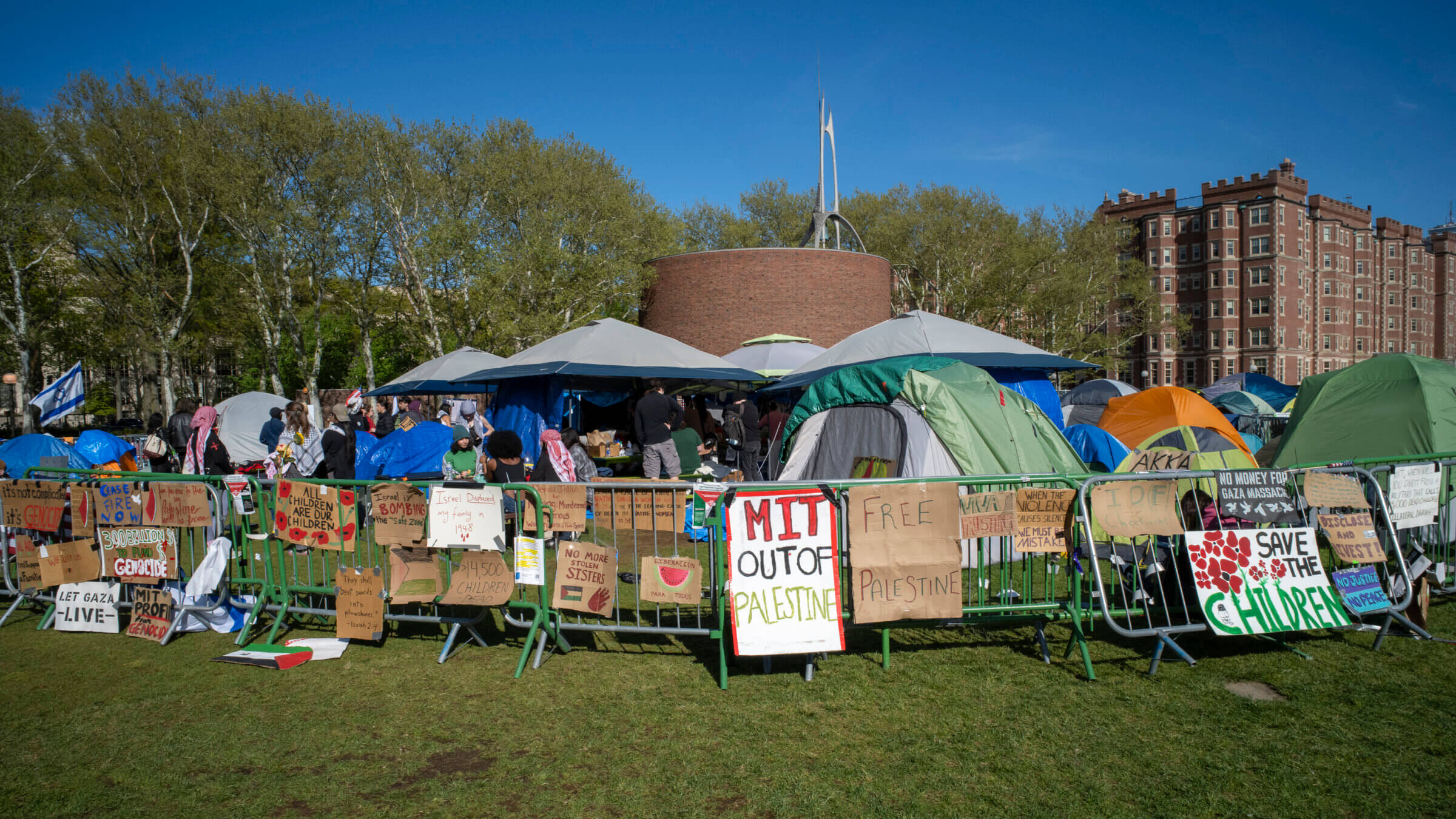MIT clears encampment, arrests 10 students
As spring semester ends, the Israel-Gaza war continues to reverberate on US campuses

A pro-Palestinian encampment at MIT before police dismantled it. Photo by Rick Friedman /AFP via Getty
At the Massachusetts Institute of Technology, police dismantled an encampment early Friday morning and arrested 10 students who refused to leave after a series of warnings. President Sally Kornbluth said in a message published online that the situation was “increasingly untenable” and “not heading in a direction anyone could call peaceful” following a standoff Thursday between protesters and police.
Spring semester is ending at U.S. colleges and universities, but the impact of the Israel-Gaza war continues to reverberate amid student protests, encampments and calls for universities to divest from Israel.
Union Theological Seminary announced that its board of trustees endorsed divestment “from companies profiting from the war.” The seminary has long had a “socially responsible” investment strategy that precipitated divestment from fossil fuels in 2014 and from South Africa during the apartheid era. Its investment consultants will now be directed to identify any companies benefiting from Israel’s war in Gaza that were not already blacklisted by existing policies.
Colson Whitehead, the Pulitzer Prize-winning author, canceled his commencement speech at the University of Massachusetts Amherst after the administration summoned police to handle campus protesters. “I was looking forward to speaking next week at UMass Amherst,” he wrote on the social network Bluesky. “I visited two years ago and everyone was awesome. My nephew graduated from there and got a great education. But calling the cops on peaceful protesters is a shameful act.” He added that he prays for “the safety of the Palestinian people, the return of the hostages, and an end to this terrible war.”
Cornell’s president, Martha Pollack, announced her resignation Thursday, becoming the third Ivy League university chief to do so this semester. The presidents of Harvard and Penn resigned after being criticized for congressional testimony about university policies on antisemitism.
Pollack has been criticized for disciplining six protesters despite the recent launch of a free-expression initiative at Cornell, but she rejected any notion that her resignation was related to campus protests. “I understand that there will be lots of speculation about my decision, so let me be as clear as I can: This decision is mine and mine alone,” she wrote. “There is so much more to Cornell than the current turmoil taking place at universities across the country right now, and I hope we do not lose sight of that.”





















